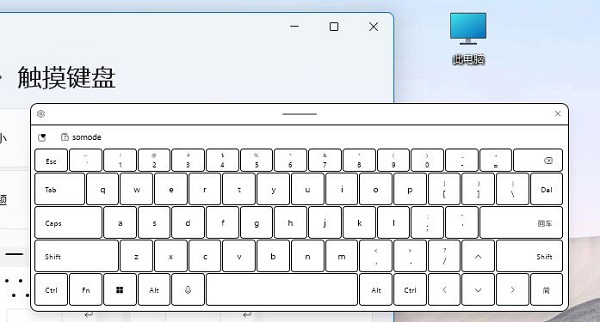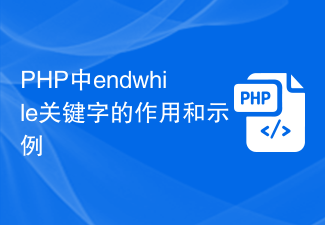 Backend Development
Backend Development PHP Tutorial
PHP Tutorial Explore the role of PHP code standards in cross-team collaboration
Explore the role of PHP code standards in cross-team collaboration
Explore the role of PHP code specifications in cross-team cooperation
In the modern software development environment, teamwork has become a common way of working. For projects developed collaboratively by multiple people, the importance of code standards is self-evident. Especially in the field of PHP development, by following unified code specifications, development efficiency can be improved, errors reduced, code readability improved, and seamless collaboration among team members promoted. This article will explore the role of PHP coding standards in cross-team collaboration and provide some examples to illustrate their importance.
First of all, PHP code standards help improve team consistency. Team members all follow the same coding standards, which ensures uniform coding style and reduces conflicts caused by personal preferences or styles. A unified coding style helps team members understand, debug, and maintain each other's code more easily. For example, the PSR (PHP Standard Recommendation) specification released by PHP-FIG (PHP Framework Interop Group) provides a series of best practices and specifications in PHP project development, including PSR-1 (Basic Code Specification), PSR-2 ( Coding style specifications), etc. The following is a code example that follows the PSR-2 specification:
<?php
// 文件名应命名为类的一致
class MyClass
{
// 属性的命名应使用camelCase
protected $myProperty;
// 方法名应使用camelCase
public function myMethod($myParam)
{
// 变量名应使用camelCase
$result = $this->myProperty * $myParam;
return $result;
}
}Secondly, good coding specifications can improve code quality. By standardizing and unified code structure, common errors and potential risks can be reduced. For example, code specifications can constrain team members to use appropriate naming conventions to improve code readability and maintainability. In addition, the specification can also stipulate some best practices, such as avoiding the use of global variables, encouraging the use of OOP (object-oriented programming), etc., thereby improving the scalability and testability of the code. The following is a simple example:
<?php
// 遵循良好的命名规范
const PI = 3.14159;
// 使用面向对象编程
class Circle {
private $radius;
public function __construct($radius) {
$this->radius = $radius;
}
public function getArea() {
return PI * pow($this->radius, 2);
}
}
$circle = new Circle(5);
echo $circle->getArea();Finally, code standards help reduce communication costs in team collaboration. Especially when there are developers with different technical backgrounds and experience levels in the team, lengthy discussions on code understanding and interpretation can be reduced through unified code specifications. All team members can quickly understand and read code that conforms to the specification, and can more quickly adapt to other code in the project, improving the team's work efficiency.
To sum up, the role of PHP code specifications in cross-team cooperation cannot be ignored. By following unified coding standards, team members can improve team consistency, code quality and readability, and reduce communication costs. Therefore, in any PHP development project, it is recommended that team members jointly develop and adhere to a set of coding standards that suit themselves.
References:
- PHP-FIG: https://www.php-fig.org/
- PSR-1: https://www. php-fig.org/psr/psr-1/
- PSR-2: https://www.php-fig.org/psr/psr-2/
The above is the detailed content of Explore the role of PHP code standards in cross-team collaboration. For more information, please follow other related articles on the PHP Chinese website!
 触摸键盘在win11中的功能和用途Jan 03, 2024 pm 04:40 PM
触摸键盘在win11中的功能和用途Jan 03, 2024 pm 04:40 PM我们在浏览win11设置的时候,可能发现其中有一个触摸键盘设置,但是我们屏幕也不支持触屏,那么这个win11触摸键盘到底有什么用呢,其实它就是屏幕键盘。win11触摸键盘的作用:1、win11触摸键盘其实就是“屏幕键盘”2、它可以模拟真实键盘,通过点击的方式来使用键盘。3、当我们没有键盘或是键盘坏了的时候,就可以使用它来打字。4、win11为触摸键盘提供了丰富的个性化选项。5、其中包括了各种颜色、主题,能够让用户自由切换喜欢的风格。6、点击左上角“齿轮”还能修改键盘布局、手写等输入方式。
 深入了解Gunicorn的基本原理和功能Jan 03, 2024 am 08:41 AM
深入了解Gunicorn的基本原理和功能Jan 03, 2024 am 08:41 AMGunicorn的基本概念和作用Gunicorn是一个用于在PythonWeb应用程序中运行WSGI服务器的工具。WSGI(Web服务器网关接口)是Python语言定义的一种规范,用于定义Web服务器与Web应用程序之间的通信接口。Gunicorn通过实现WSGI规范,使得PythonWeb应用程序可以被部署和运行在生产环境中。Gunicorn的作用是作
 mac地址的作用是什么Dec 10, 2020 am 10:07 AM
mac地址的作用是什么Dec 10, 2020 am 10:07 AMmac地址的作用是标识具体的网络节点。MAC地址是一个用来确认网络设备位置的位址,mac地址在一定程度上与硬件一致,是基于物理的。计算机之间进行通信时,数据包在节点之间的传递都是由地址解析协议负责将IP地址映射到MAC地址上来的。
 PHP中endwhile关键字的作用和示例Jun 28, 2023 pm 08:00 PM
PHP中endwhile关键字的作用和示例Jun 28, 2023 pm 08:00 PMPHP中endwhile关键字的作用和示例在PHP中,endwhile是一种控制结构,用来实现while循环。它的作用是让程序在满足指定条件的情况下,重复执行一段代码块,直到条件不再满足。endwhile的语法形式如下:while(condition)://循环体代码endwhile;在这个语法中,condition是一个逻辑表达式,当该表达
 光盘驱动程序的功能和用途说明Dec 30, 2023 pm 06:37 PM
光盘驱动程序的功能和用途说明Dec 30, 2023 pm 06:37 PM对于使用电脑的朋友来说,系统驱动是一个很熟悉的概念,也可能自己安装过驱动程序。但是,对于系统驱动光盘的作用,有些人可能并不清楚。实际上,系统驱动光盘是一个非常方便的驱动安装工具。下面,我将为大家详细介绍一下它的作用。系统驱动光盘通常随着电脑或硬件设备一起提供。它包含了硬件设备所需的驱动程序和软件。当我们需要安装一个新的硬件设备时,可以使用系统驱动光盘来快速安装所需的驱动程序。这些驱动程序可以使硬件设备正常工作,并与操作系统进行良好的兼容。使用系统驱动光盘安装驱动程序非常简单。首先,我们需要将光盘
 pageXOffset属性在JavaScript中的作用是什么?Sep 16, 2023 am 09:17 AM
pageXOffset属性在JavaScript中的作用是什么?Sep 16, 2023 am 09:17 AM如果您想获取文档从窗口左上角滚动到的像素,请使用pageXoffset和pageYoffset属性。对水平像素使用pageXoffset。示例您可以尝试运行以下代码来了解如何在JavaScript中使用pageXOffset属性-现场演示<!DOCTYPEhtml><html> <head> <style> &
 PHP中echo关键字的作用和使用方法详解Jun 28, 2023 pm 08:12 PM
PHP中echo关键字的作用和使用方法详解Jun 28, 2023 pm 08:12 PMPHP中echo关键字的作用和使用方法详解PHP是一种广泛使用的服务器端脚本语言,它在网页开发中被广泛应用。而echo关键字是在PHP中用于输出内容的一种方法。本文将详细介绍echo关键字的作用和使用方法。作用:echo关键字的主要作用是将内容输出到浏览器。在网页开发中,我们需要将数据动态地呈现到前端页面上,这时就可以使用echo关键字将数据输出到页面上。e
 PHP中var关键字的作用和示例Jun 28, 2023 pm 08:58 PM
PHP中var关键字的作用和示例Jun 28, 2023 pm 08:58 PMPHP中var关键字的作用和示例在PHP中,var关键字用于声明一个变量。以前的PHP版本中,使用var关键字是声明成员变量的惯用方式,现在已经不再推荐使用。然而,在某些情况下,var关键字依然会被使用。var关键字主要用于声明一个局部变量,并且会自动将该变量标记为局部作用域。这意味着该变量仅在当前的代码块中可见,并且不能在其他函数或代码块中访问。使用var


Hot AI Tools

Undresser.AI Undress
AI-powered app for creating realistic nude photos

AI Clothes Remover
Online AI tool for removing clothes from photos.

Undress AI Tool
Undress images for free

Clothoff.io
AI clothes remover

AI Hentai Generator
Generate AI Hentai for free.

Hot Article

Hot Tools

Notepad++7.3.1
Easy-to-use and free code editor

Atom editor mac version download
The most popular open source editor

Dreamweaver Mac version
Visual web development tools

Dreamweaver CS6
Visual web development tools

DVWA
Damn Vulnerable Web App (DVWA) is a PHP/MySQL web application that is very vulnerable. Its main goals are to be an aid for security professionals to test their skills and tools in a legal environment, to help web developers better understand the process of securing web applications, and to help teachers/students teach/learn in a classroom environment Web application security. The goal of DVWA is to practice some of the most common web vulnerabilities through a simple and straightforward interface, with varying degrees of difficulty. Please note that this software





